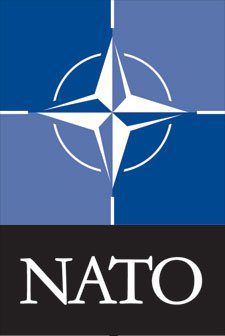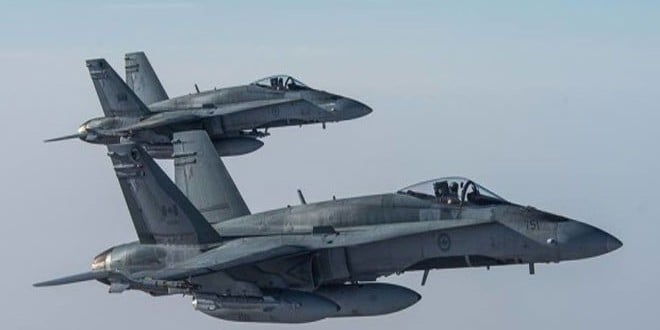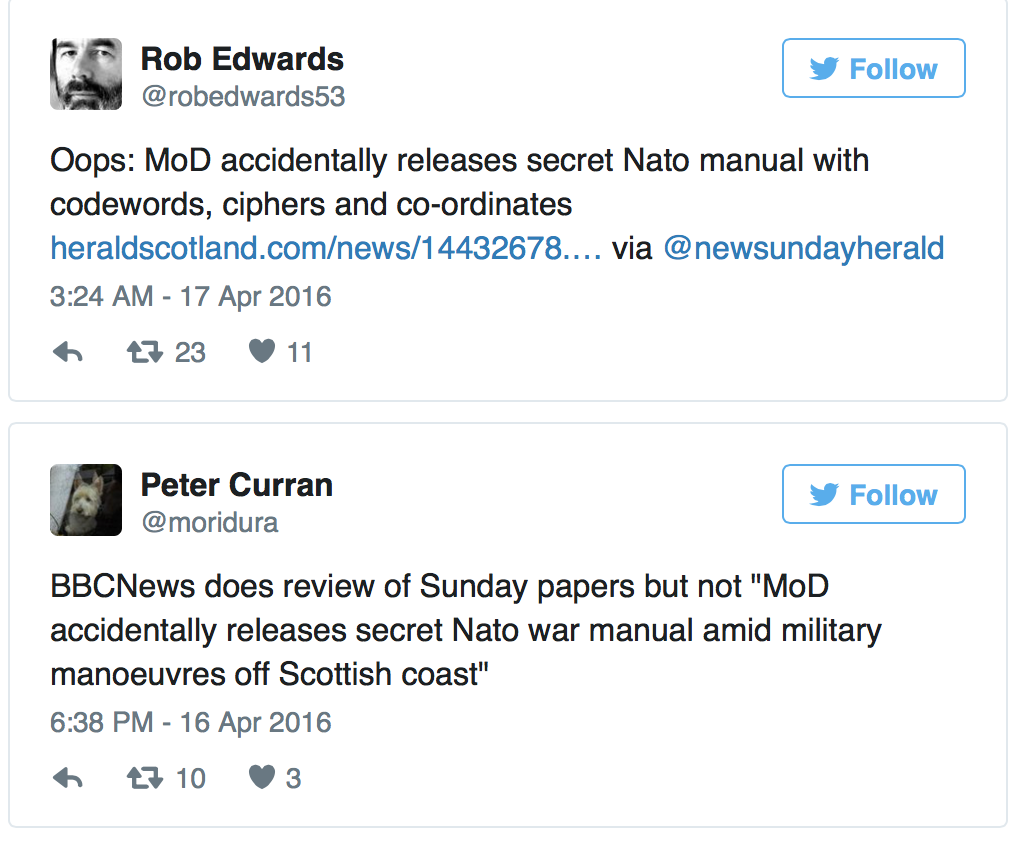Huge War Games around Scotland: Ooops. “Secret NATO War Games Manual” Accidentally Released by Britain’s Ministry of Defence

NATO’s “Exercise Joint Warrior” regrouping some 3400 NATO army, navy and air force personnel from 12 NATO countries is ongoing in Scotland. These war games follow those conducted last year in Scotland involving 13,000 Troops, 54 Warships, 70 Planes, as well as Submarines.
Although on a smaller scale compared to last year’ Joint Warrior also held in Scotland, these war games involve a massive deployment of military might. The public has been barely informed.
The exercise runs until 23 April and will involve submarines, surface ships and aircraft including RAF Typhoons.
Warships and aircraft have already started arriving in Scotland ahead of the start of the training.
This year’s second staging of Joint Warrior, which will also take place in Scotland, will include what the Royal Navy has described as its first “robot wars”.
Unmanned Warrior 2016 will involve drones, including unmanned aerial vehicles and machines that can operate underwater.
Companies that manufacture the weapons and Nato member countries have been invited by the Royal Navy to take part. (BBC, April 17, 2019)
In an unusual twist, Britain’s Ministry of Defence (MoD) accidentally released a secret NATO report pertaining to the war games “with codewords, ciphers, co-ordinates, radio frequencies and a host of other “special instructions” for huge war games under way around Scotland.”
An MoD official mistakenly circulated a manual for planned air operations during major military exercises involving more than a dozen countries. Joint Warrior 161 is currently being played out around Scotland, while Griffin Strike 16 is taking place around the southwest coasts of England and Wales.
But instead they were given technical details of aircraft “killbox” target areas, code decryption tables, radio jamming rules and authentication protocols. As well as dozens of codewords, call signs and map co-ordinates, the report includes long lists of phone numbers, email addresses and military facilities. (Herald Scotland, 17 April, 2016)
Michel Chossudovsky contributed to this report



